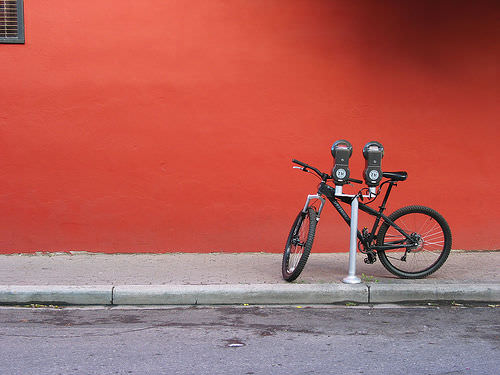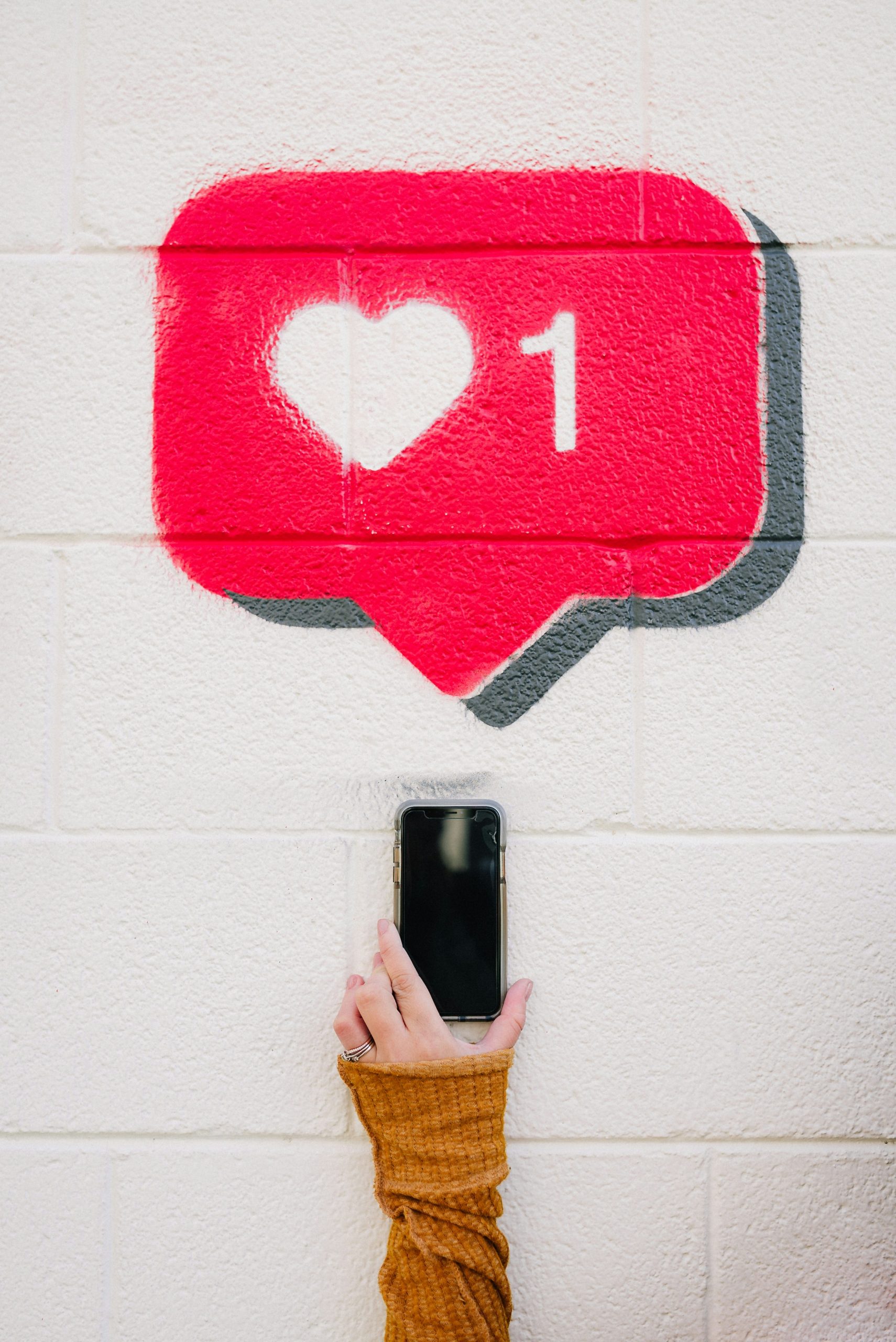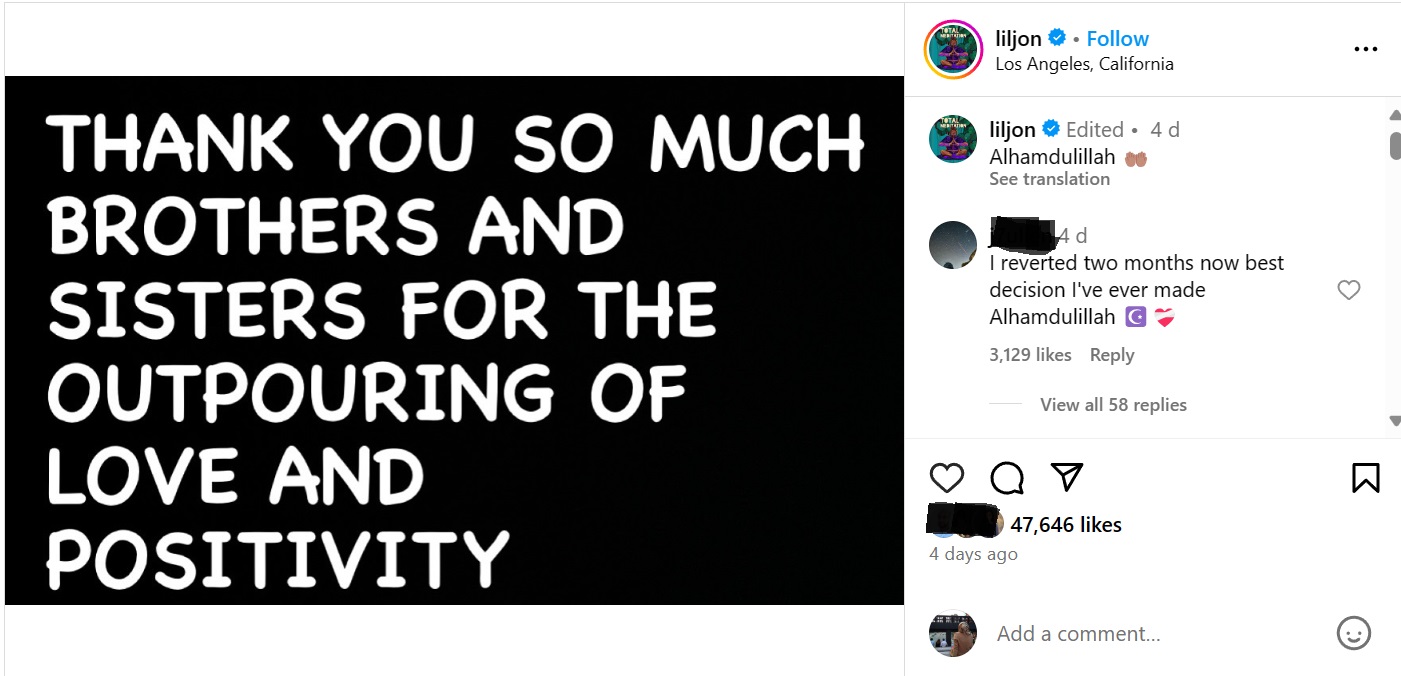This Ramadan, MuslimMatters reached out to our regular (and not-so-regular) crew of writers asking them to share their reflections on various ayahs/surahs of the Quran, ideally with a focus on a specific juz – those that may have impacted them in some specific way or have influenced how they approach both life and deen. While some contributors are well-versed in at least part of the Quranic Sciences, not all necessarily are, but reflect on their choices as a way of illustrating that our Holy Book is approachable from various human perspectives.
Introducing, A Ramadan Quran Journal: A MuslimMatters Series

Author’s Note: This story is an expanded version of chapter 5 of The Deal, a novela I wrote previously for MM. I will insert it as an additional chapter between 5 and 6, inshaAllah.
Background:
Jamilah is a young Palestinian-American woman working as a bike messenger in San Francisco, trying to raise money to put herself through law school. She is not a religious woman, but one day her bike is stolen and she makes a deal with Allah that if she gets her bike back, she will pray and wear hijab.
She does indeed recover the bike, with the help of her mysterious and powerful colleague Hassan, and proceeds to keep her end of the bargain. As soon as she starts becoming more religious, however, things begin to go wrong in her life, culminating with losing her job, and her mother becoming ill. Jamilah is baffled. She thought having a relationship with Allah was supposed to make your life better?
She hurries home to Fresno, where her mother is hospitalized. Feeling alone and confused, she calls Hassan, who tells her that he’ll be there as soon as he can. She sits beside her mother, who is sleeping, and holds her hand.
***
The Covenant
by Wael Abdelgawad
Double Relief
“As-salamu alaykum.” Jamilah looked up, and there was Hassan. He looked very different than he did at work. He wore blue jeans, a knee-length Arab-style shirt with buttons down the front, and a white and green kufi on his head. In one hand he carried a blue Adidas bag. With his broad shoulders and muscular physique, Hassan looked like an image from an Islamic fashion magazine.
“Wa alaykum as-salam,” she said. “How’d you get here so fast?”
“I have friends with cars. I got my hands on an Audi, and I put the pedal to the metal. How’s your mother?”
“She hasn’t been awake since I’ve been here. We’ll know more in the morning.”
“May Allah give her shifaa’. Here, your cousin gave me this to give to you.” He handed her the blue bag containing her extra clothing.
“Hassan, I really appreciate you coming. I’m sorry if it’s been any trouble. I’ve just been feeling so alone and confused.” A tear slipped from her eye and ran down her cheek, and she covered her face in embarrassment.
Hassan kneeled beside her. “It’s going to be okay, Jamilah. You’ll get through this, Insha’Allah. Allah says, ‘Inna ma’al ‘usri yusraa.’ With every difficulty comes ease. In fact, yusraa is a dual form, so it’s saying that with every difficulty comes double relief.”
“I could u – use some double relief,” Jamilah said, her breath hitching as she tried to stifle her sobs. She wiped her tears. “I said almost the same words to my little brother when I got here – it’s okay, we’ll get through this. But Hassan, all I’ve had since I made this deal with Allah are problems. I got fired, and now this.” She gestured toward her mom.
“Don’t be too sure about being fired,” Hassan said, “The boss will change his mind, I expect. And for your mom, just pray. Allah hears you. I know it might seem like He doesn’t. But He’s with you. Faith doesn’t make our problems disappear, you know? In fact, as your imaan increases, the tests increase, or they wouldn’t challenge you.”
“I don’t want to be challenged right now.”
Hassan nodded. “Yeah… I’m sure. But..” He shrugged. “That’s life. It’s how you learn who you are. The tests are not for Allah, they’re for us. We have to trust that Allah isn’t some random god up there in the heavens saying, ‘Let me see what I can throw at them today.’ He cares about us.”
“I thought faith was supposed to make things easier, not harder,” Jamilah said.
“I think it does make life better,” Hassan said, “It certainly made my life better. But it doesn’t make us rich, or beautiful, or take away all our problems, because Allah doesn’t value those things. Those things are not part of the covenant. Our predecessors, the Prophets and the Sahabah, went through major hardships, but they persevered. That’s the key, I think. Faith gives us the means to cope, because we trust that Allah wants good for us, and we know that the road ends in Jannah – in Paradise.”
“Do you believe that?” Jamilah asked.
“What, you mean Jannah? Don’t you?”
“I subscribe to the belief,” Jamilah said. “Because it’s a part of my religion. But in my heart? I don’t know.”
The Funeral
Hassan was silent. He stood and stretched his arms, then walked to the door of the room. Then he turned back to Jamilah. “Can I tell you a story?” he said.
“Please do.”
“My parents died when I was twelve, and – “
“Oh, Hassan! I didn’t know that.”
“It’s okay. What I wanted to say is that I remember the day we buried my father. I remember the bells, and the procession to the cemetery. There were a lot of people there. I remember people reciting poems, everyone chanting with one voice. And some of the mourners striking their own faces. People playing drums, flutes, cymbals. Two men drew swords and danced, shouting like they were at war. I had grown up here in the U.S. and it was all strange to me. Charlie – “ Hassan paused and looked down at the floor. He smoothed his kufi with his hand, then continued.
“My little brother. I could hear him crying, and a part of me was worried he’d have an asthma attack, but I couldn’t think about that. I was told to climb down into the grave to help lower my father’s body, so I did, along with three other men. The grave seemed so deep, and the gravel at the bottom was cold and damp. We held his casket and lowered it into the grave. At that moment everything disappeared -” Hassan made a motion as if wiping a window clean.
“Down in that hole, the world was silent. I remember that I bent down and picked up a handful of gravel. I was thinking of how alive my father had been just a few days before. And I thought, this is what it comes to. Everything that my father was, everything that he felt and hoped, everything that he would have been, was now just this inert body in a damp hole. All his secrets, private dreams, the details of his life that he had never shared, gone. It made no sense at all.”
“Later, when I came to Islam, I realized that nothing is gone. All that my father was, all that he thought and dreamed, is alive with Allah. It exists. Not only that, it’s alive with my father, because his soul, his essence, is immortal. That feels so right to me. I can feel in my bones that it’s true. Whether Allah will forgive my father, whether he is destined for Paradise or Hell, I can’t say. That’s for Allah. But what I know is that the promise of Allah is true, and that this life” – he pointed to the floor – “is a single moment in this great journey that we’re on. So yes, the afterlife exists. I absolutely know it, like I know that I am standing here in this room.” He tapped the floor with his shoe.
Jamilah was silent for a while. “I believe that too, I suppose,” she said. “I never considered it in those terms, but if I think about my father, then yes, I believe that my father’s essence is alive. And I believe he’s in a good place. I appreciate you sharing that with me Hassan. Thank you.”
Hassan nodded and sucked on his lower lip. Jamilah wondered what he was thinking.
“I didn’t know you had a brother,” Jamilah said.
Hassan pursed his lips. His jaw was set in a way that Jamilah had never seen before, and his eyes were chips of ice. It was a look of accumulated fury, as if Hassan had harbored an inner rage for so long that it had frozen into a glacier in his heart.
“He’s dead,” Hassan said. “Not long after my parents. I don’t want to talk about it.”
Jamilah was shocked – Hassan had lost so much – but she respected the man’s wishes. She watched as Hassan began compulsively manipulating his own hands in strange ways, twisting them outward, then folding them toward his arms, then pulling the fingers out and down.
“What is that you do with your hands?” she asked.
“These are wrist stretches,” Hassan said. “In some of the martial arts I practice, we do a lot of joint manipulation. We attack all the joints, but especially the wrists. So I run through these stretches every day, sometimes twenty or thirty times.”
Her Father’s Strength
As Hassan performed his exercises, Jamilah thought about her own father. He’d been a strong man, with a broad back and deep chest. At Madera’s annual Cinco de Mayo parade he would lift both children onto his shoulders at the same time, one on each shoulder. When he was feeling playful he would even lift their mother onto his shoulders as she squealed and protested in genuine outrage. That had always made Jamilah and Nabeel laugh uproariously. Jamilah had imagined her father could lift the world itself.
It had never occurred to her that her father would die one day, and certainly not so soon. But he’d been a heavy smoker all his life, and the cigarettes had poisoned him from the inside out. When he’d died so suddenly and so painfully, it had at first shaken Jamilah to the core. She withdrew into herself, neglecting her schoolwork and her friends. Finally one day her mother said, “Jamilah, I know you loved your father with all your heart. But you are your father’s daughter. You have his strength, I can see it. You have his drive and determination. If you want to make him proud, then stand up and be strong like him. Be everything that he was.”
That had done the trick.
How strange, Jamilah thought. I haven’t thought of that in years. I’d totally forgotten Mom saying that to me. It was funny in a way, because Jamilah had indeed become a strong and proud girl, and had ended up at loggerheads with her mother over everything from the clothes she wore to her choice of major in college. She was ashamed to admit that she had thought her mother weak, in a way.
Something occurred to her. “Hey Hassan,” Jamilah said, “When you were describing your father’s funeral, that wasn’t a Muslim funeral, was it?” she said.
“No.”
“So your parents weren’t Muslim? You said you came to Islam later. What religion were you?”
“Can I trust you to keep these things to yourself, Jamilah? I have reasons for wanting to keep my life private.”
“I don’t see what the big deal is, I mean you already told me – “
Hassan shook his head. “Never mind then. I didn’t mean to get into all this.” He stood and looked at Jamilah’s mother. “She’s still a beautiful woman ma-sha-Allah. I can see where you get your beauty.”
“Don’t try to change the subject,” Jamilah said. A part of her was pleased at Hassan’s compliment. She wondered if Hassan really thought she was beautiful, or was just being polite. I shouldn’t be thinking about such things. My mother could be dying.
Hassan said nothing. He sat in a chair against the wall, took out a pocket Quran, and began to read silently. The only sound in the room was the hum of the air conditioner. The room was slightly cool, and only half lit, so that it felt to Jamilah as if she were in a cryo capsule on a spaceship. Her mother’s chest rose and fell beneath the blanket.
The Covenant
Even though Hassan did not speak, Jamilah did not feel lonely. He’d driven all the way from San Francisco just to be here. That meant a lot.
“What did you mean,” Jamilah said eventually, “about a covenant? That we have a covenant with Allah, and it doesn’t include all the things we think it does?”
“You made a deal with Allah, right? He gave you the bike back, and you practice Islam?”
“Basically.”
Hassan stood and handed her the Quran. “Open it to Surat At-Tawbah, ayah number 111. It’s part of the 10th juz, which I think a lot of people feel uncomfortable with because they feel that it’s all about battles and fighting.”
Jamilah studied the index, found that At-Tawbah was surah number 9, and flipped through it until she reached ayah 111. She read out loud:
“Indeed, Allāh has purchased from the believers their lives and their properties [in exchange] for that they will have Paradise. They fight in the cause of Allāh, so they kill and are killed. [It is] a true promise [binding] upon Him in the Torah and the Gospel and the Qur’ān. And who is truer to his covenant than Allāh? So rejoice in your transaction which you have contracted. And it is that which is the great attainment.”
She frowned. “So the covenant is that I kill and get killed? I don’t want to kill anyone.”
“That’s not the point. These surahs in juz number 10, At-Tawbah and Al-Anfal, were relevant to the specific circumstances the Muslims were going through at the time, in which they were under attack by the polytheists. The physical survival of the Muslim community was at stake. For us, the point is that we put everything on the line in the cause of Allah. We struggle. We experience hardship. Yet we remain steadfast, we don’t surrender and don’t give up our deen, because we already belong to Allah. He purchased us, and everything we are, in exchange for Jannah. That’s the covenant, that’s the deal. We surrender to Allah, and He gives us Jannah. Boom. Nothing else.”
“So my deal was wrong?”
“No, Allah accepted your deal. But on His terms. You thought your deal with Allah was one thing – you give me this, I’ll give you that – but Allah is telling you that it’s much more. We dedicate to Allah our souls, our hearts, our deeds, and He gives us Jannah. That’s the price of faith. We don’t pray and fast because Allah gives us some material thing we want. We do it because He gave us everything – food, water, breath… Life. Everything that we have comes from Him. So we worship because we’re grateful, right? Because we love Allah.”
Jamilah nodded slowly. “I see what you’re saying. It’s much more than I’ve been thinking about. It’s a little frightening to think in those terms.”
“Aren’t your people fighters?”
Jamilah glanced at Hassan in surprise. How had he known that? “The people of Palestine are under attack,” she said. “What do we do? Stand up, fight back.”
“That’s cool, what is that?”
“Something my father used to say. We lost family members in the nakbah, we lost family in the refugee camp massacres in Lebanon. We’ve had family members locked up and tortured by the Israelis just for advocating for human rights for Palestinians. It’s why I want to become a lawyer.”
“SubhanAllah. Amazing. So you already have what it takes.”
Tranquility
“What about tranquility?” Jamilah said.
“What do you mean?”
“You said that faith doesn’t bring material rewards. Okay, I accept that. But shouldn’t it at least bring inner peace?”
Hassan shrugged. “I think it does.”
“Then why are you so troubled? Why do you keep secrets? At times you seem tranquil – actually, you seem like a mountain sometimes, just silent and solid. But other times you seem like you’re about to crack in half.”
Hassan turned and walked to the doorway. “You have a brother, right? Where is he?”
Jamilah sighed. Trying to get Hassan to open up was like trying to break down the Israeli apartheid wall with a pillow.
“That’s a good question. Nabeel went to the cafeteria ages ago. He’s probably trying to hit on a pretty nurse. Or maybe he went home for something, I don’t know. Hassan, I asked you a question. What’s with all the secrets?”
“Yes, I hear you…” He turned back and looked at her. “You know what I said about my father, about standing in the grave and thinking, ‘Is this what it comes to?’”
“Yeah.”
“There isn’t a day when I don’t remember that moment and that thought. Some things are hard to shake, even when you know better. I… made mistakes when I was young, and I know that becoming Muslim wipes out everything that came before, but that doesn’t take away the shame, or the memories. It doesn’t make the past easier to live with. And I’m still living with the consequences. I don’t…” Hassan shook his head. “I don’t have a good relationship with the past.”
“Didn’t you tell me that forgiveness is a big part of Islam?”
“Yes.”
“Doesn’t that include forgiving yourself?”
Hassan nodded his head slowly. “I don’t know how.”
Step by Step
Still holding the Quran in one hand, Jamilah stroked her mother’s cheek with the other. The woman was so pale, though her hair was still jet black. Jamilah needed her to recover. La ilaha il-Allah. She needed to talk to her mother again.
Something occurred to her. “Different question,” she said to Hassan. “You say that the covenant with Allah is that we struggle in his cause, and He gives us Jannah. Period.”
“You got it.”
“So what form is that struggle supposed to take? What exactly do I do?”
“Read the next ayah. 112.”
Jamilah read:
“[Such believers are] the repentant, the worshippers, the praisers [of Allāh], the travelers [for His cause], those who bow and prostrate [in prayer], those who enjoin what is right and forbid what is wrong, and those who observe the limits [set by] Allāh. And give good tidings to the believers.”
Jamilah nodded. “I already think of all these actions as part of the deen. Repent, pray, praise Allah, do what’s right, don’t do haram. Traveling in His cause though, I haven’t done that.”
“Hajj. Traveling to learn about Islam. Traveling to help people, to defend human rights, to fight for what’s right.”
“I can do these things. I think I can. Maybe I can.”
Hassan laughed. “You’re fading by the second. Just say, ‘I will do that, inshaAllah. Step by step. Take the step, Allah will help you. That’s part of the covenant too.’”
Jamilah understood. She handed the Quran back to Hassan. “Step by step.”
THE END
***
Reader comments and constructive criticism are important to me, so please comment!
See the Story Index for Wael Abdelgawad’s fiction stories on this website.

Wael Abdelgawad’s novels – including Pieces of a Dream, The Repeaters and Zaid Karim Private Investigator – are available in ebook and print form on his author page at Amazon.com.
Related:
– A Ramadan Quran Journal: A MuslimMatters Series – [Juz 3] What Is True, And What Matters
– A Ramadan Quran Journal: A MuslimMatters Series – [Juz 1] Reflections On The Opening Chapter
The post A Ramadan Quran Journal: A MuslimMatters Series – [Juz 10] The Covenant appeared first on MuslimMatters.org.
 plan. It is among “the best of stories” [Surah Yusuf: 12;3] and a beautiful example of how, in the end, everything ultimately comes together perfectly according to His Divine Decree, and in this is a lesson for those with albab (minds) [Surah Yusuf: 12;111]. It contains what I find to be one of the most comforting ayat when experiencing sadness or hardship:
plan. It is among “the best of stories” [Surah Yusuf: 12;3] and a beautiful example of how, in the end, everything ultimately comes together perfectly according to His Divine Decree, and in this is a lesson for those with albab (minds) [Surah Yusuf: 12;111]. It contains what I find to be one of the most comforting ayat when experiencing sadness or hardship:
 is the one who hears and understands you when no one else does.
is the one who hears and understands you when no one else does. 

 is not unaware of what the oppressors do.
is not unaware of what the oppressors do.  is not unaware of the wrongdoing, and is only delaying oppressors and wrongdoers until the Hereafter.
is not unaware of the wrongdoing, and is only delaying oppressors and wrongdoers until the Hereafter.  is All-Hearing and All-Knowing and will surely bring oppressors to justice.
is All-Hearing and All-Knowing and will surely bring oppressors to justice.



 , or wrong others by oppressing them (or both) will experience this torment and wish it were possible for them to be delayed in their punishment.
, or wrong others by oppressing them (or both) will experience this torment and wish it were possible for them to be delayed in their punishment. 

 always keeps His promises and is fully capable of punishment. I find ayah 48 a very powerful and stark reminder. In particular, the phrasing of the Day of Judgement as replacing/changing the earth and the heavens is a profound description of how temporary this life is. In the context of bringing oppressors to justice, I also think of it as a reminder that ultimate victory and ultimate justice are near because the Day will come when the earth and heavens are replaced and everyone will be held accountable.
always keeps His promises and is fully capable of punishment. I find ayah 48 a very powerful and stark reminder. In particular, the phrasing of the Day of Judgement as replacing/changing the earth and the heavens is a profound description of how temporary this life is. In the context of bringing oppressors to justice, I also think of it as a reminder that ultimate victory and ultimate justice are near because the Day will come when the earth and heavens are replaced and everyone will be held accountable.


 holds everyone accountable for their actions and in accordance with the deeds they have committed, and these ayat explain how wrongdoers will be held accountable for theirs.
holds everyone accountable for their actions and in accordance with the deeds they have committed, and these ayat explain how wrongdoers will be held accountable for theirs. 
 punishment, and to internalize that everyone who transgresses in this life will not get away with it forever.
punishment, and to internalize that everyone who transgresses in this life will not get away with it forever.  alleviate the suffering of the oppressed of the Ummah, and grant them His promised justice against the oppressors.
alleviate the suffering of the oppressed of the Ummah, and grant them His promised justice against the oppressors.






 to his mother so that she would not grieve (e.g Surah Taha:40). And He loves the believers!
to his mother so that she would not grieve (e.g Surah Taha:40). And He loves the believers!






